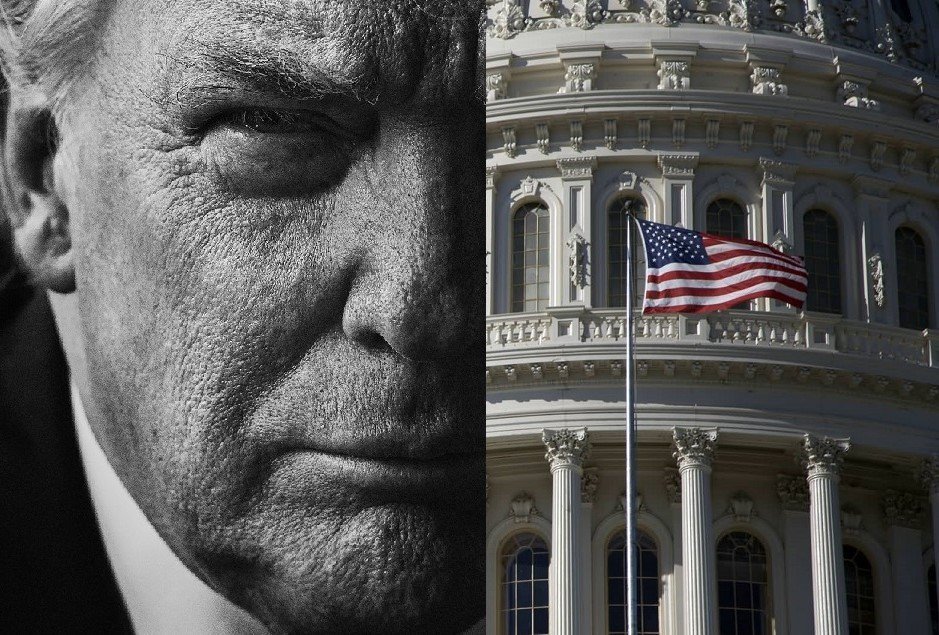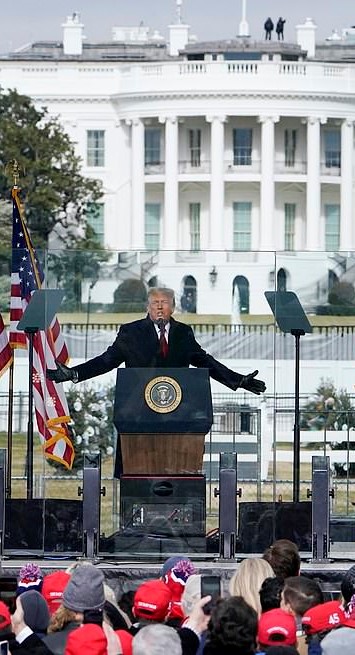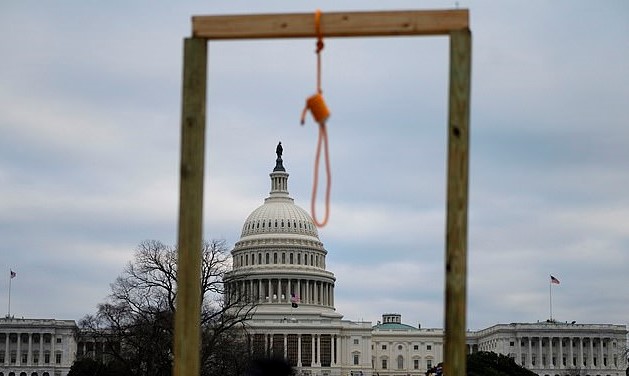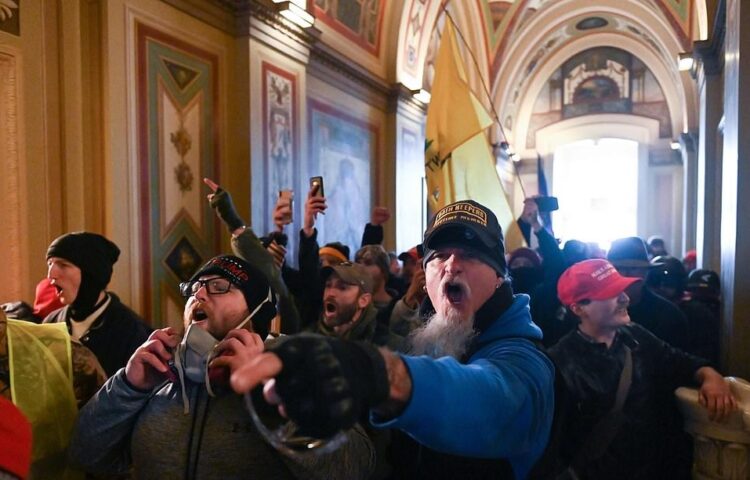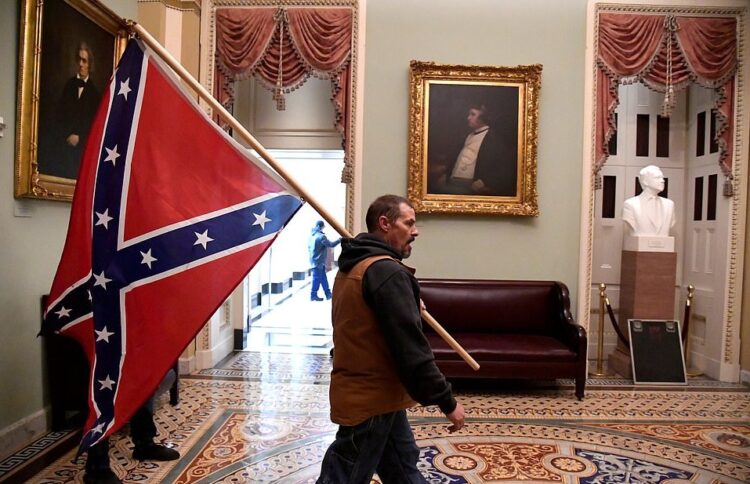The House of Representatives delivered an article of impeachment against Donald Trump to the Senate last month – the first time in history a president will face a second impeachment trial.
Nine Democratic impeachment managers brought the article of impeachment – the charge of incitement laid out and approved by the House – to the Senate in a small, formal procession through National Statuary Hall, where just weeks ago rioters paraded, waving Trump flags.
“Republicans are constantly fighting like a boxer with his hands tied behind his back,” Trump told his supporters shortly before the Capitol assault. “It’s like a boxer, and we want to be so nice. We want to be so respectful of everybody, including bad people. We’re going to have to fight much harder, and Mike Pence is going to have to come through for us. And if he doesn’t, that will be a sad day for our country because you’re sworn to uphold our constitution.”
Trump then invited the crowd to go to the Capitol.
“And after this, we’re going to walk down, and I’ll be there with you. We’re going to walk down. We’re going to walk down any one you want, but I think right here. We’re going to walk down to the Capitol, and we’re going to cheer on our brave senators, and congressmen and women. We’re probably not going to be cheering so much for some of them, because you’ll never take back our country with weakness. You have to show strength, and you have to be strong.”
His supporters listened.
Thousands of Trump supporters, waving Trump or Confederate flags and wearing MAGA gear, descended upon the Capitol.
They overwhelmed law enforcement, pushed past police barricades, and temporarily stopped Congress from counting the electoral votes that made Joe Biden president.
What happens Tuesday?
Traditionally the trial would have started almost immediately upon receipt of the impeachment article.
But Senate leaders agreed on a two-week delay, allowing time for Joe Biden to install his cabinet and begin pursuing a legislative agenda.
That all comes to a halt on Tuesday when the impeachment trial begins.
What is the charge?
Trump is accused of “inciting violence against the government of the United States”, for his statements at a rally prior to his supporters launching the attack on the Capitol in which five people died.
The House impeached Trump for “high crimes and misdemeanors” on January 13, exactly one week after the siege.
The final vote was 232 to 197, with 10 Republicans joining Democrats.
Will witnesses be called?
That is not yet known.
In Trump’s first impeachment trial, over approaches to Ukraine for dirt on political rivals, the Republican-held Senate refused to call witnesses.
Now the Senate is in Democratic hands but many in the party are hoping for a speedy trial so as not to distract from Biden’s first weeks in the White House.
Some Democrats have said they do not expect to call witnesses, given that lawmakers bore witness to – and were the victims of – the attack on the Capitol.
Who runs the trial?
The chief justice of the supreme court, John Roberts, oversaw Trump’s first trial in February 2020, but he will not be in the chair this time around.
The trial will be run by Patrick Leahy, a Democratic senator from Vermont and the Senate president pro tempore, a position decided by seniority.
Rep. Jamie Raskin, a Democrat from Maryland and the lead impeachment manager, will be the lead prosecutor.
One of two attorneys named to defend Trump represented Roger Stone, believes Jeffrey Epstein did not kill himself and numbers among his clients “all sorts of reputed mobster figures”, including “a guy the government claimed was the biggest mafioso in the world”.
The other declined to prosecute Bill Cosby.
Bruce Castor, from Pennsylvania, and David Schoen, of Georgia will argue on behalf of Trump that it is unconstitutional to convict a former president.
How long will the trial last?
That is also still not known, but it is expected to be much quicker than the last impeachment trial – perhaps a matter of days, not weeks.
What are the chances Republicans vote to convict?
A two-thirds majority of the Senate is needed to convict Trump.
As with his first impeachment trial, many Republicans see that as unlikely.
Only Mitt Romney dared break ranks last time and, while more are expected to do so this time, it would take 17 Republicans joining all 50 Democrats to convict.
However, McConnell’s public ambivalence over his own vote has led to some speculation that if he were to signal support for conviction, he could provide cover for more defections.
If Trump is convicted what happens next?
If Trump is convicted, there will be no immediate consequences as he has already left office.
However, lawmakers could hold another vote to block him from running again.
A simple majority would be needed to block him from holding “any office of honor, trust or profit under the United States”, blocking a White House run in 2024.
